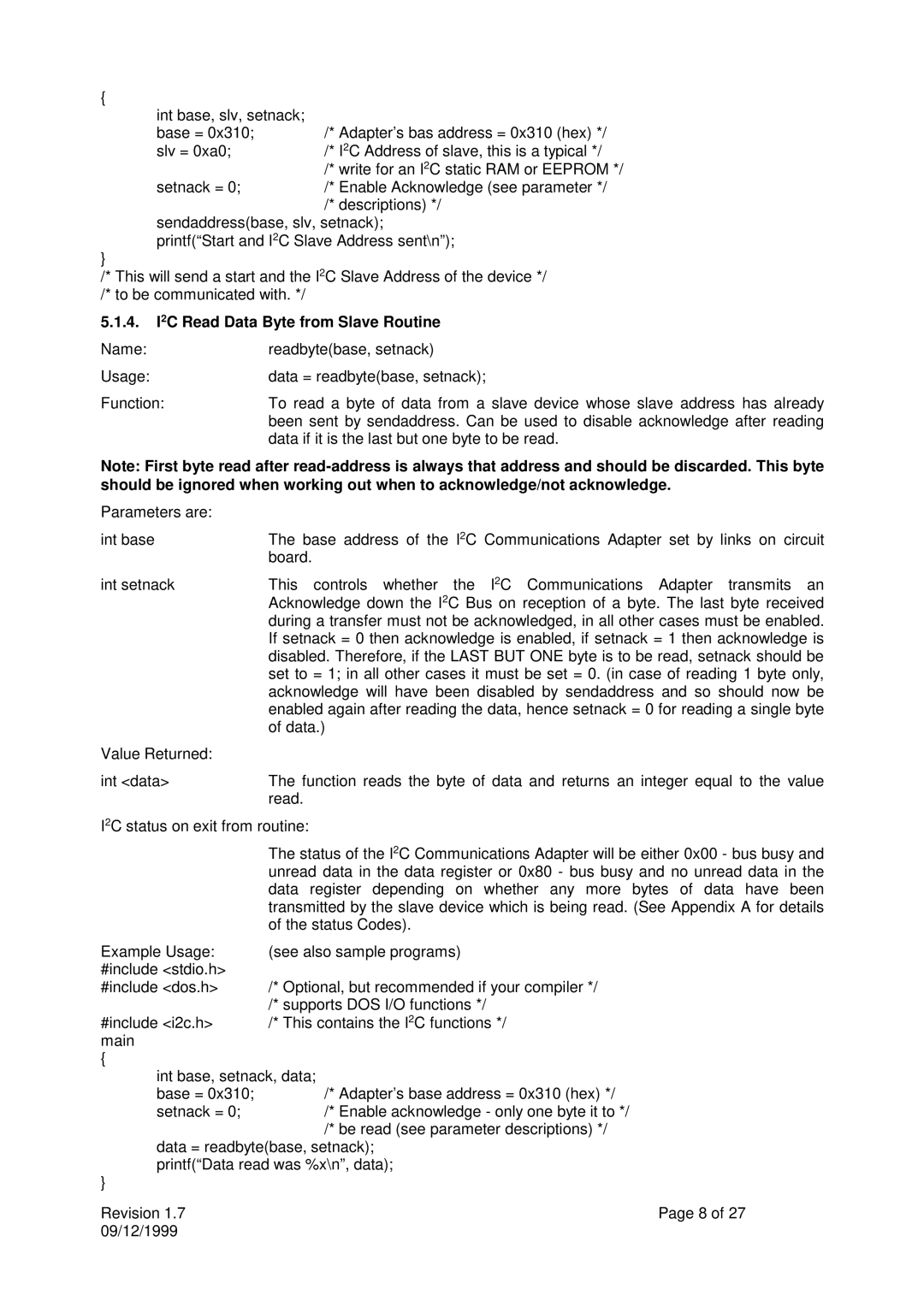{
/* Adapter’s bas address = 0x310 (hex) */ /* I2C Address of slave, this is a typical */ /* write for an I2C static RAM or EEPROM */ /* Enable Acknowledge (see parameter */ /* descriptions) */
sendaddress(base, slv, setnack); printf(“Start and I2C Slave Address sent\n”);
}
/* This will send a start and the I2C Slave Address of the device */ /* to be communicated with. */
5.1.4.I2C Read Data Byte from Slave Routine
Name: | readbyte(base, setnack) |
Usage: | data = readbyte(base, setnack); |
Function: | To read a byte of data from a slave device whose slave address has already |
| been sent by sendaddress. Can be used to disable acknowledge after reading |
| data if it is the last but one byte to be read. |
Note: First byte read after
Parameters are: |
|
int base | The base address of the I2C Communications Adapter set by links on circuit |
| board. |
int setnack | This controls whether the I2C Communications Adapter transmits an |
| Acknowledge down the I2C Bus on reception of a byte. The last byte received |
| during a transfer must not be acknowledged, in all other cases must be enabled. |
| If setnack = 0 then acknowledge is enabled, if setnack = 1 then acknowledge is |
| disabled. Therefore, if the LAST BUT ONE byte is to be read, setnack should be |
| set to = 1; in all other cases it must be set = 0. (in case of reading 1 byte only, |
| acknowledge will have been disabled by sendaddress and so should now be |
| enabled again after reading the data, hence setnack = 0 for reading a single byte |
| of data.) |
Value Returned: |
|
int <data> | The function reads the byte of data and returns an integer equal to the value |
| read. |
I2C status on exit from routine:
| The status of the I2C Communications Adapter will be either 0x00 - bus busy and |
| unread data in the data register or 0x80 - bus busy and no unread data in the |
| data register depending on whether any more bytes of data have been |
| transmitted by the slave device which is being read. (See Appendix A for details |
| of the status Codes). |
Example Usage: | (see also sample programs) |
#include <stdio.h> |
|
#include <dos.h> | /* Optional, but recommended if your compiler */ |
| /* supports DOS I/O functions */ |
#include <i2c.h> | /* This contains the I2C functions */ |
main |
|
{ |
|
int base, setnack, data; |
|
base = 0x310; | /* Adapter’s base address = 0x310 (hex) */ |
setnack = 0; | /* Enable acknowledge - only one byte it to */ |
| /* be read (see parameter descriptions) */ |
data = readbyte(base, setnack); | |
printf(“Data read was %x\n”, data); | |
} |
|
Revision 1.7 | Page 8 of 27 |
09/12/1999 |
|
